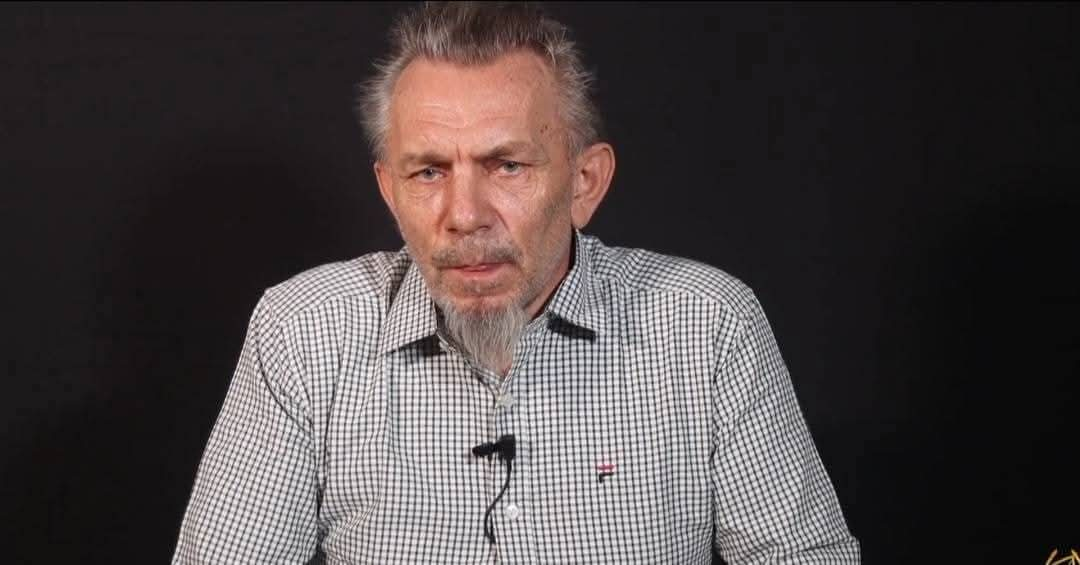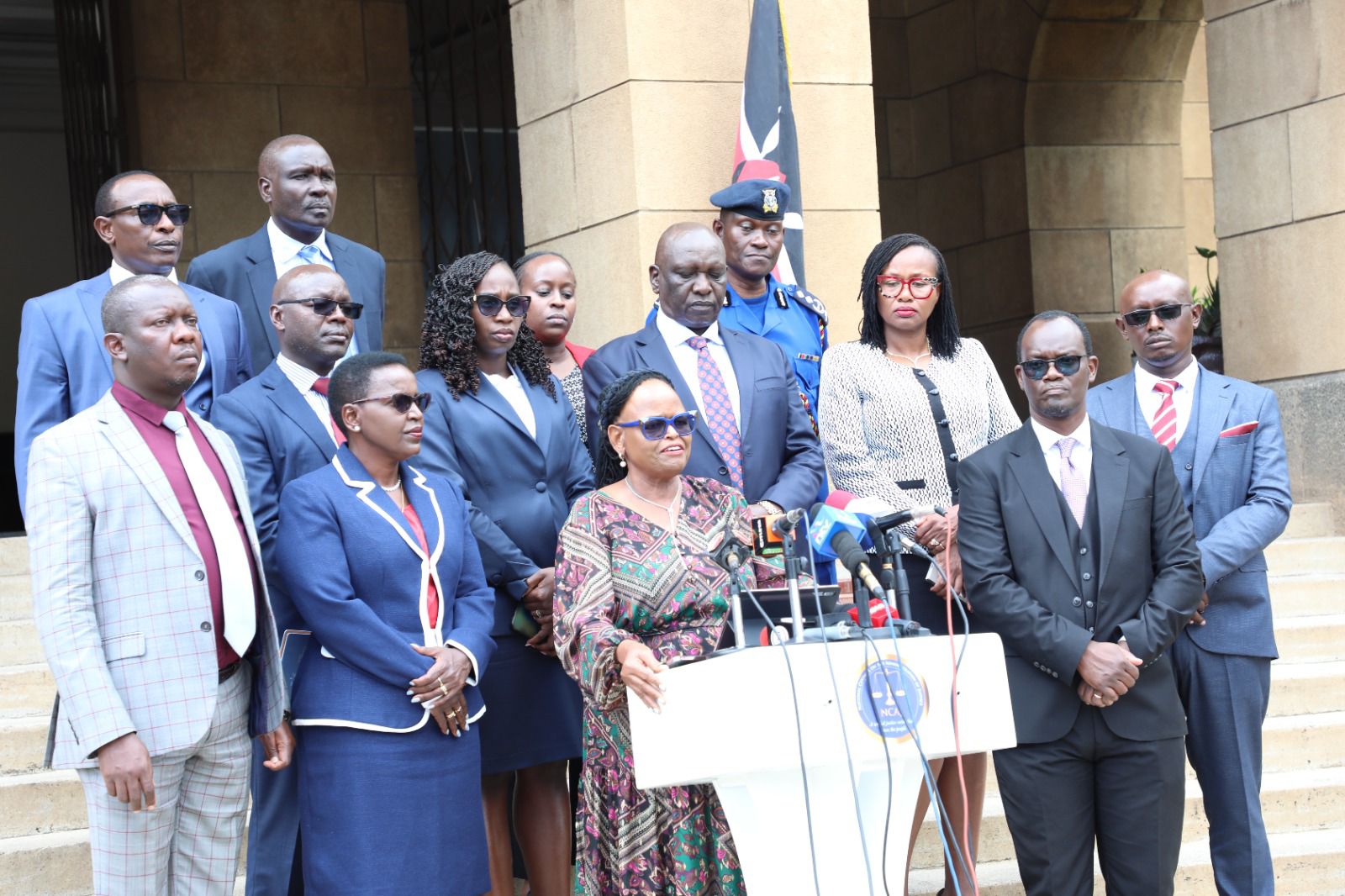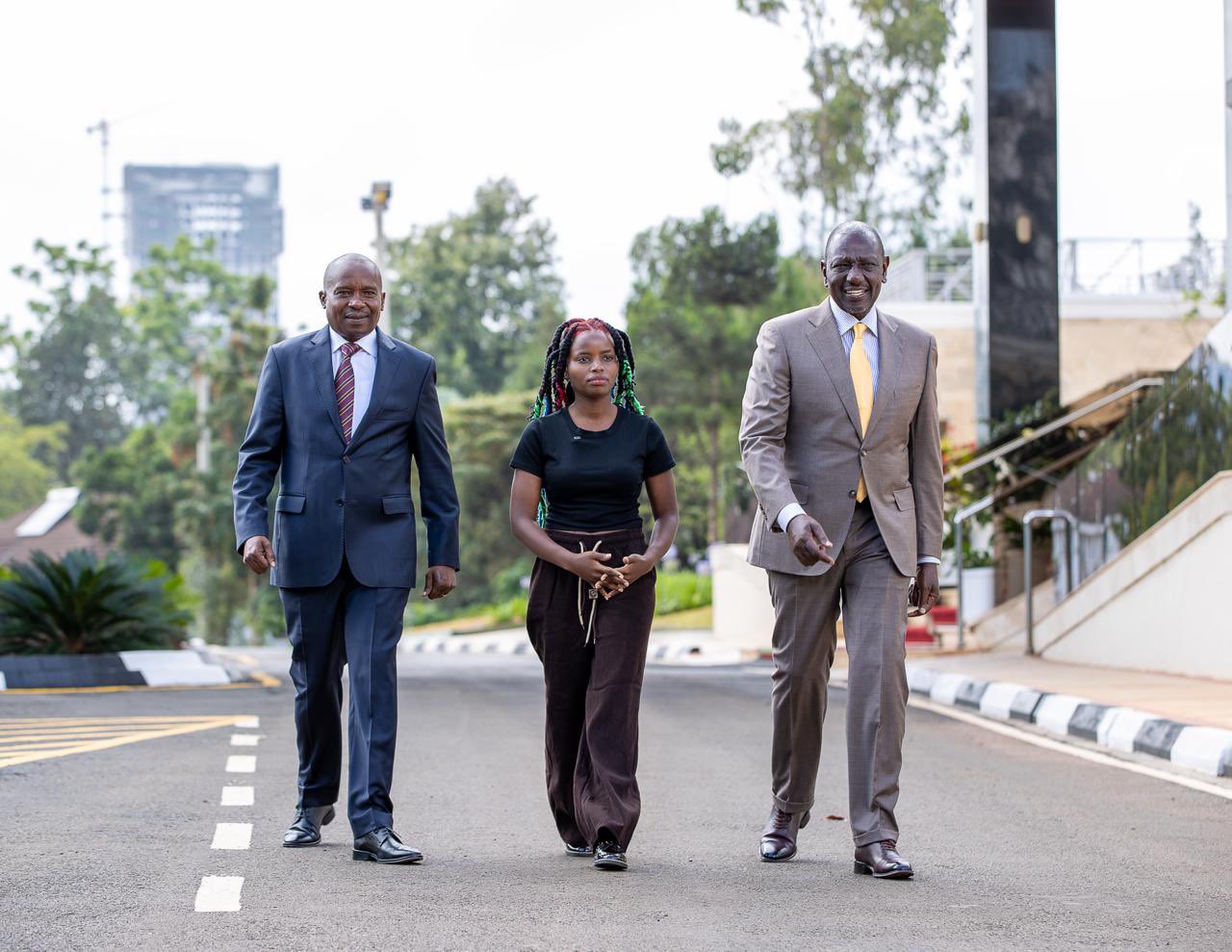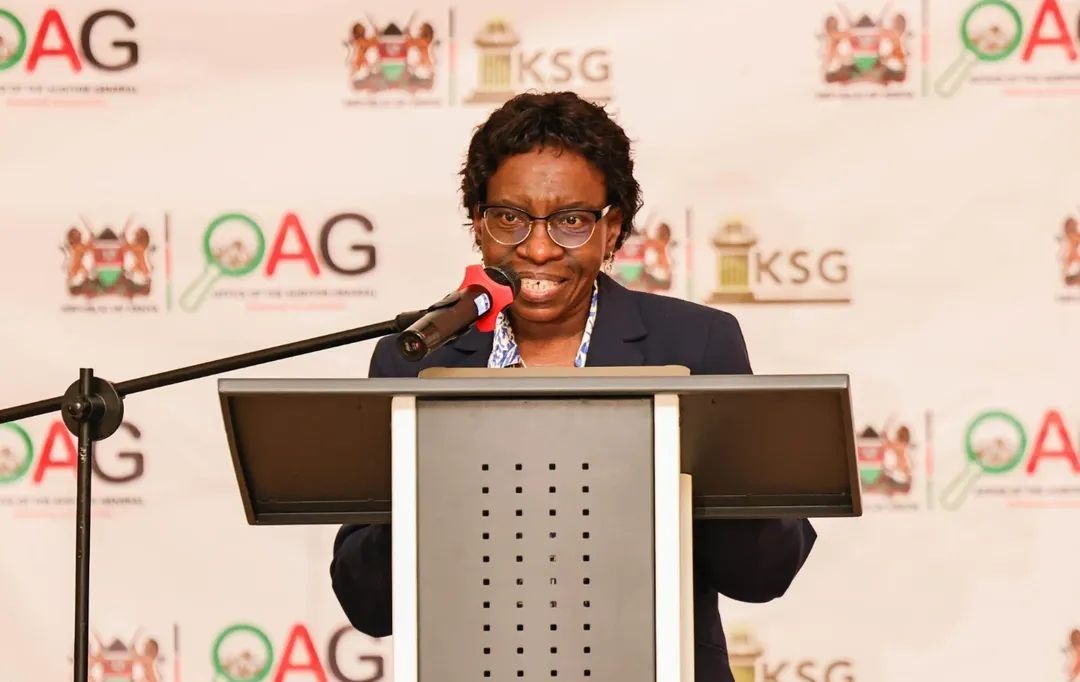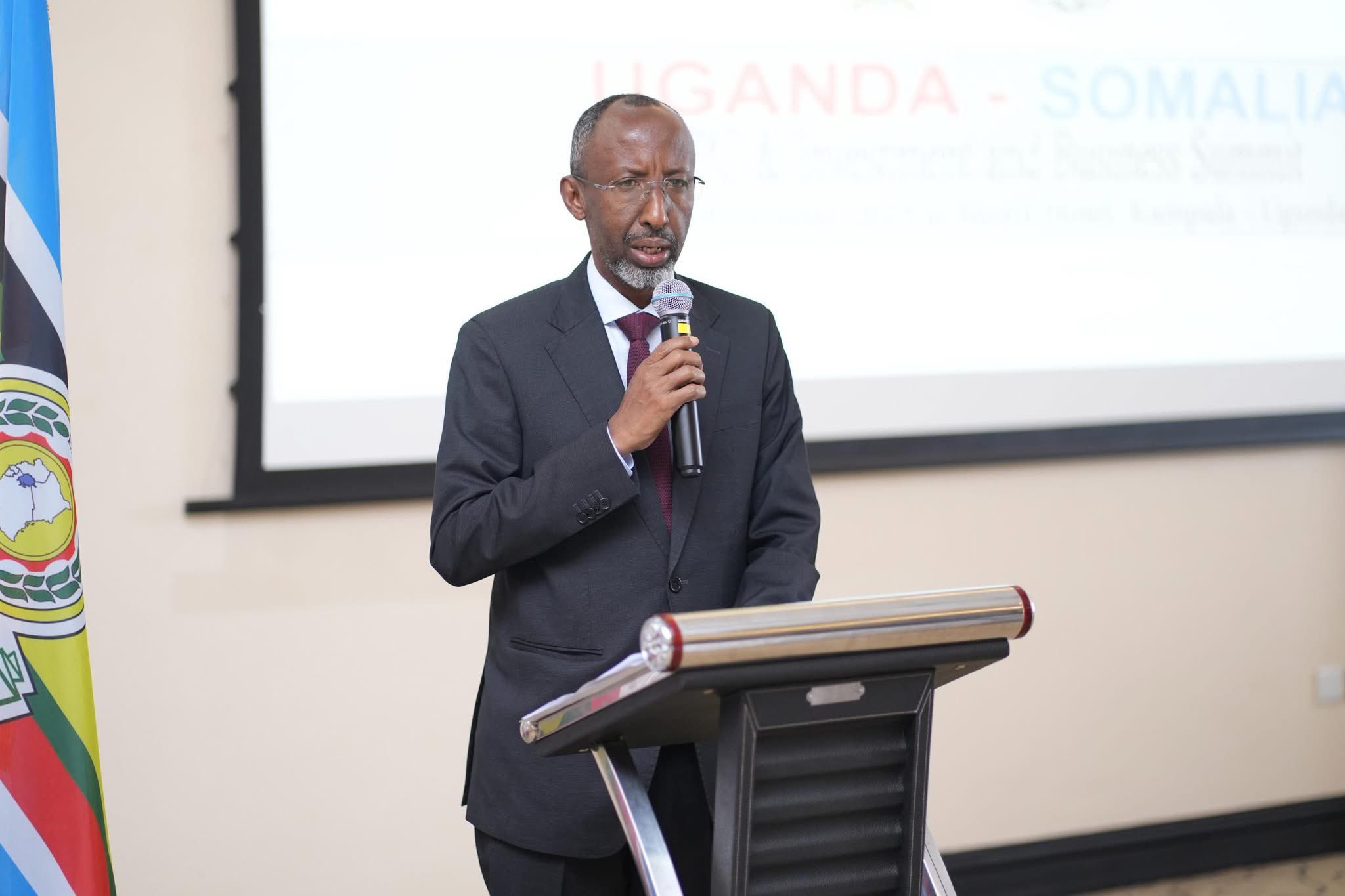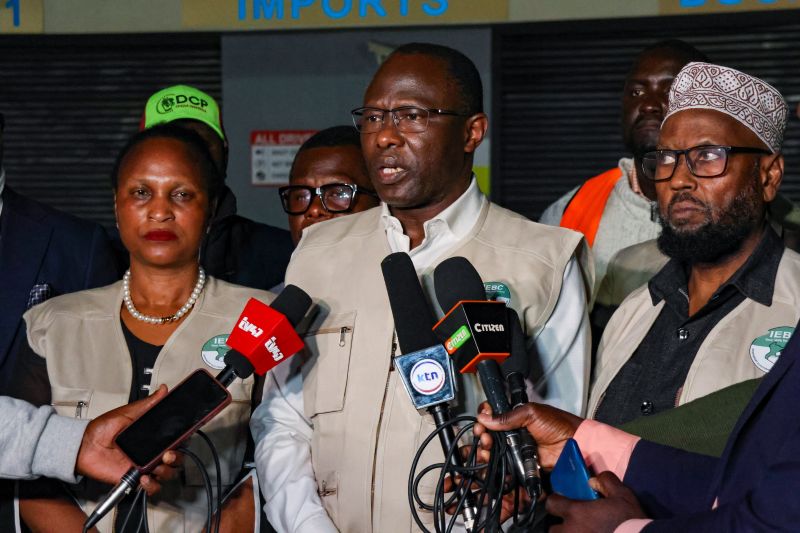Nairobi Woman Rep Esther Passaris faces recall over silence on police brutality, protest Bill

On Monday, four youthful petitioners—Shakira Wafula, Mavin Mabonga, Dominic Omondi, and Sichei Soet—presented a petition at the IEBC’s Nairobi offices accusing two-term MP Esther Passaris of abandoning her constitutional duties and failing to represent the interests of Nairobi residents, particularly women.
The Independent Electoral and Boundaries Commission (IEBC) has officially received a petition seeking the removal of Nairobi Woman Representative Esther Passaris from office, setting in motion what could become a landmark recall process. The petition, filed by civic activists citing alleged constitutional violations, could test Kenya’s democratic accountability mechanisms.
The petition was presented on Monday at the IEBC’s Nairobi offices by four youthful petitioners—Shakira Wafula, Mavin Mabonga, Dominic Omondi, and Sichei Soet.
More To Read
- IEBC drops census data, adopts ID and passport records for voter registration targets
- High Court petition challenges IEBC’s role in legal profession elections
- IEBC warns low voter registration, apathy could undermine future elections
- IEBC warns boundary review may spark community, religious and class tensions
- Court to hear petition challenging eligibility of Embu North MP Leo Wa Muthende
- Voters challenge Mbeere North MP Wamuthende’s victory over electoral name discrepancy
They accuse Passaris, a two-term MP, of abandoning her constitutional duties and failing to represent the interests of Nairobi residents, especially women.
One of the key issues raised is Passaris’ support for a proposed parliamentary Bill that requires demonstrators to seek prior approval from authorities—a measure the petitioners argue infringes on the constitutional right to peaceful assembly and protest.
“We believe Ms Passaris has betrayed the very people she was elected to serve by backing legislation and government actions that suppress dissent and harm the public,” the petitioners state in their submission.
IEBC reviewing petition
The IEBC has acknowledged receipt of the petition and is currently reviewing it to determine whether it meets the legal threshold for initiating a recall. The law requires that a sitting MP must have served at least two years and must not be in the final year of their term to be eligible for recall. If the petition is approved, it will move to the next phase—collection of supporting signatures.
Under the Constitution, a recall petition must be supported by at least 750,000 valid signatures, representing 30 per cent of Nairobi’s 2.5 million registered voters. Additionally, the signatures must include at least 15 per cent of voters from no fewer than half of Nairobi’s 85 wards.
The petitioners allege that Passaris has aligned herself closely with the Kenya Kwanza administration, including on controversial matters such as police crackdowns on recent anti-government protests.
They point to her public silence during the demonstrations, which were marked by allegations of police brutality and sexual violence.
“At a time when Nairobi women were being brutalised in the streets, the very office meant to amplify their voices was silent. Ms Passaris did not show solidarity or leadership,” the petition reads.
NGAAF management
The petition also raises concerns about transparency in the management of the National Government Affirmative Action Fund (NGAAF), which is overseen by the Woman Representative’s office.
The fund is intended to support vulnerable groups, including women, youth, and persons with disabilities.
The petitioners claim Passaris has ignored repeated public calls to release audited financial reports or disclose how the NGAAF funds have been allocated and spent.
“Despite repeated demands, she has failed to provide even basic information on the use of public funds, raising concerns about transparency and possible misuse of taxpayer resources,” the group states.
Additional allegations include the spreading of disinformation in public forums, misleading the public on policy matters, and overstating her record in Parliament.
Chapter Six
The petition cites violations of several constitutional articles—10, 35, 73, 75, 95, and 232—which pertain to principles of good governance, public access to information, ethical conduct, and the values of public service. It also references Chapter Six of the Constitution, which outlines leadership and integrity standards for public officials.
Lead petitioner Shakira Wafula described the campaign as both a legal and symbolic move, representing a wider public demand for transparency and accountability from elected leaders.
“I’m actually very confident that when we start collecting signatures, it will be possible to get more than one million,” Wafula told the Nation.
“Despite filing the petition under my name, I represent many voices, people in social justice networks, online communities, and our neighbourhoods. We have the numbers. What I am more concerned about is the murkiness of the recall process itself.”
If the petition passes IEBC scrutiny and the signature collection is successful, the Commission will have 30 days to verify the names.
Upon validation, it must notify the Speaker of the National Assembly, who is then required to call a recall election within 90 days.
For the recall to succeed, at least 50 per cent of Nairobi’s registered voters must participate in the election, and a majority must vote in favour of removing the MP.
Top Stories Today
